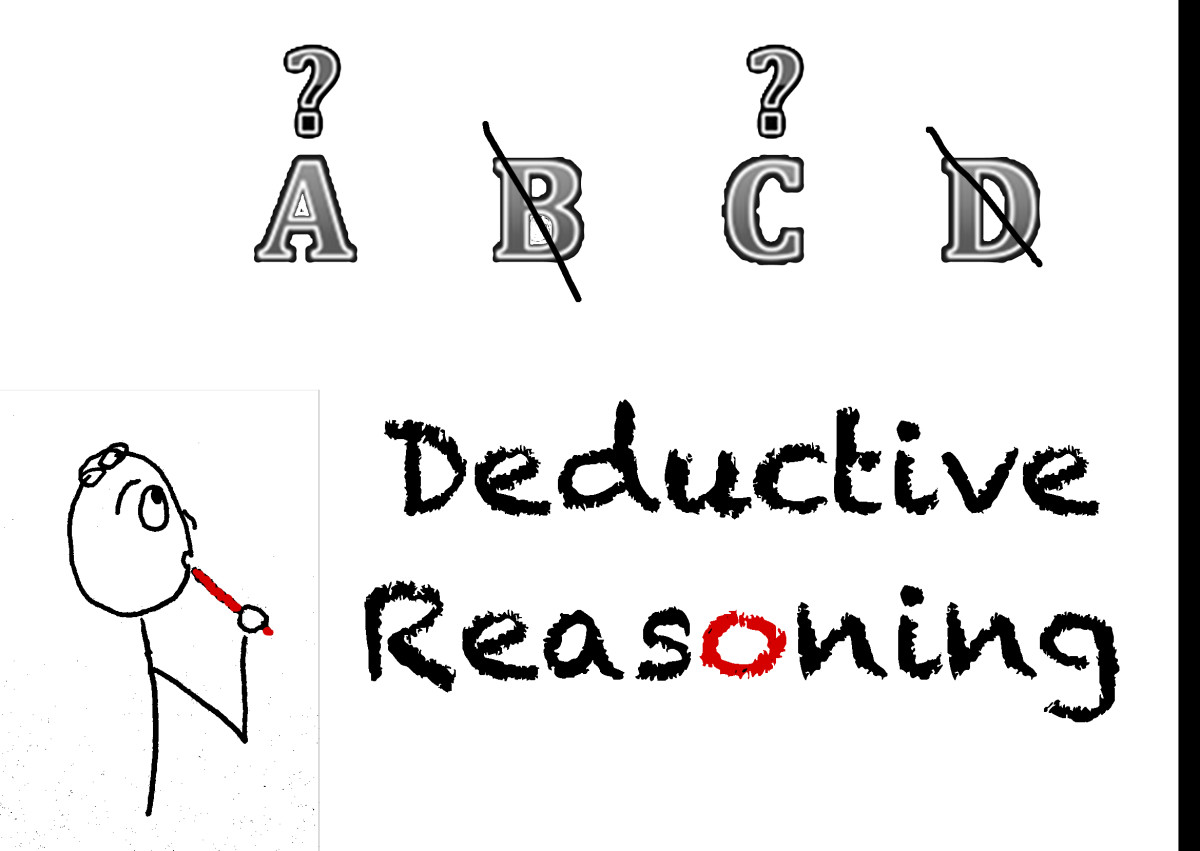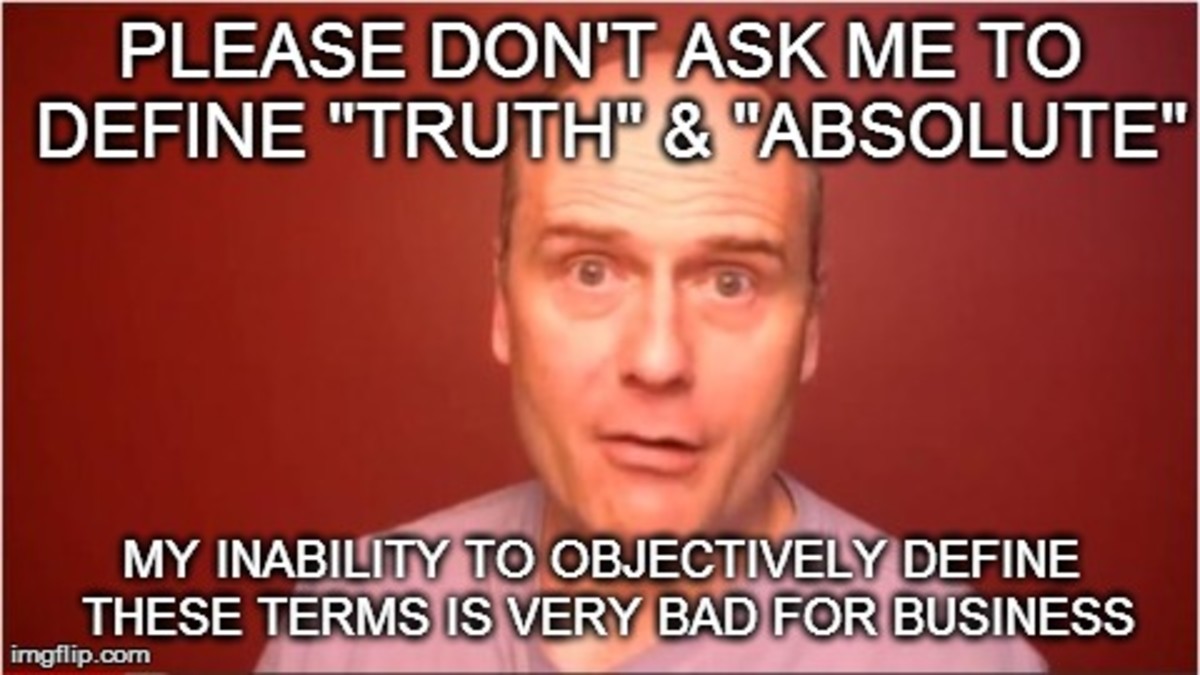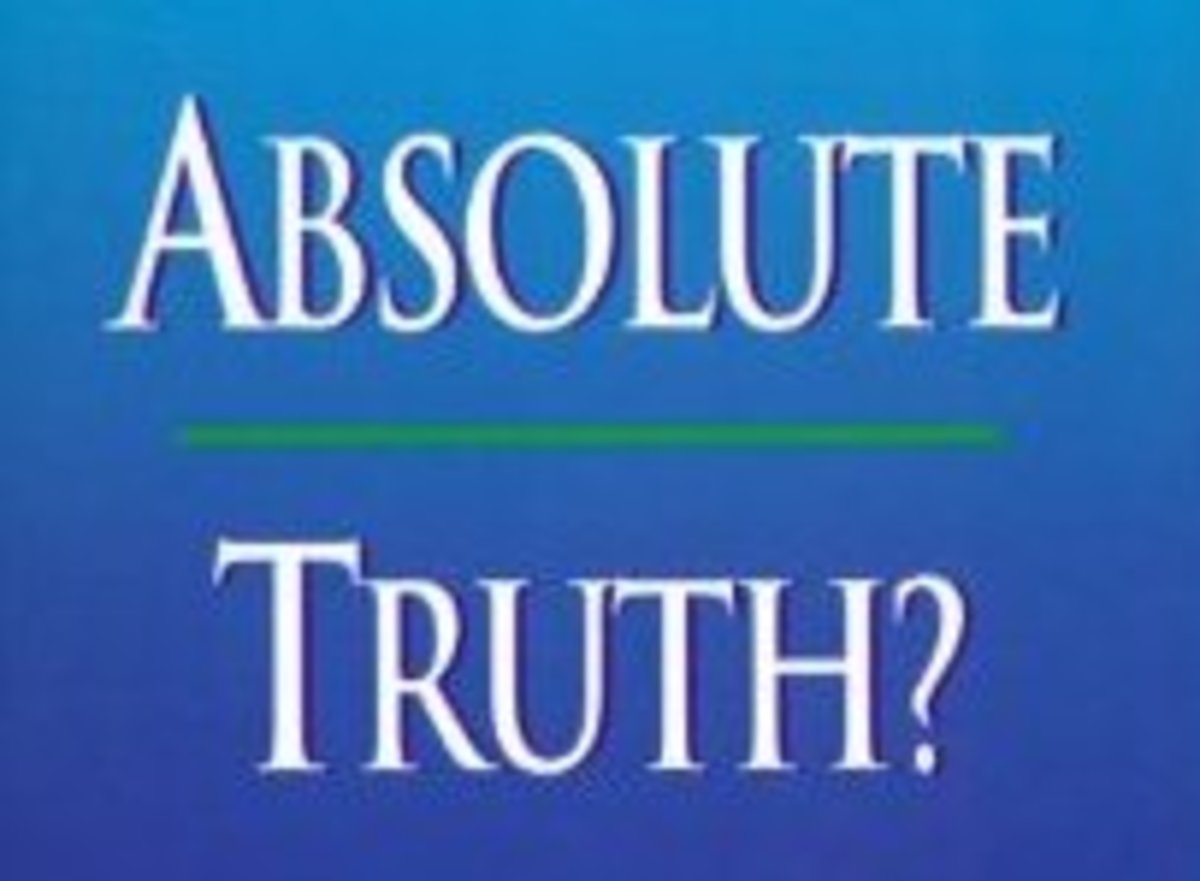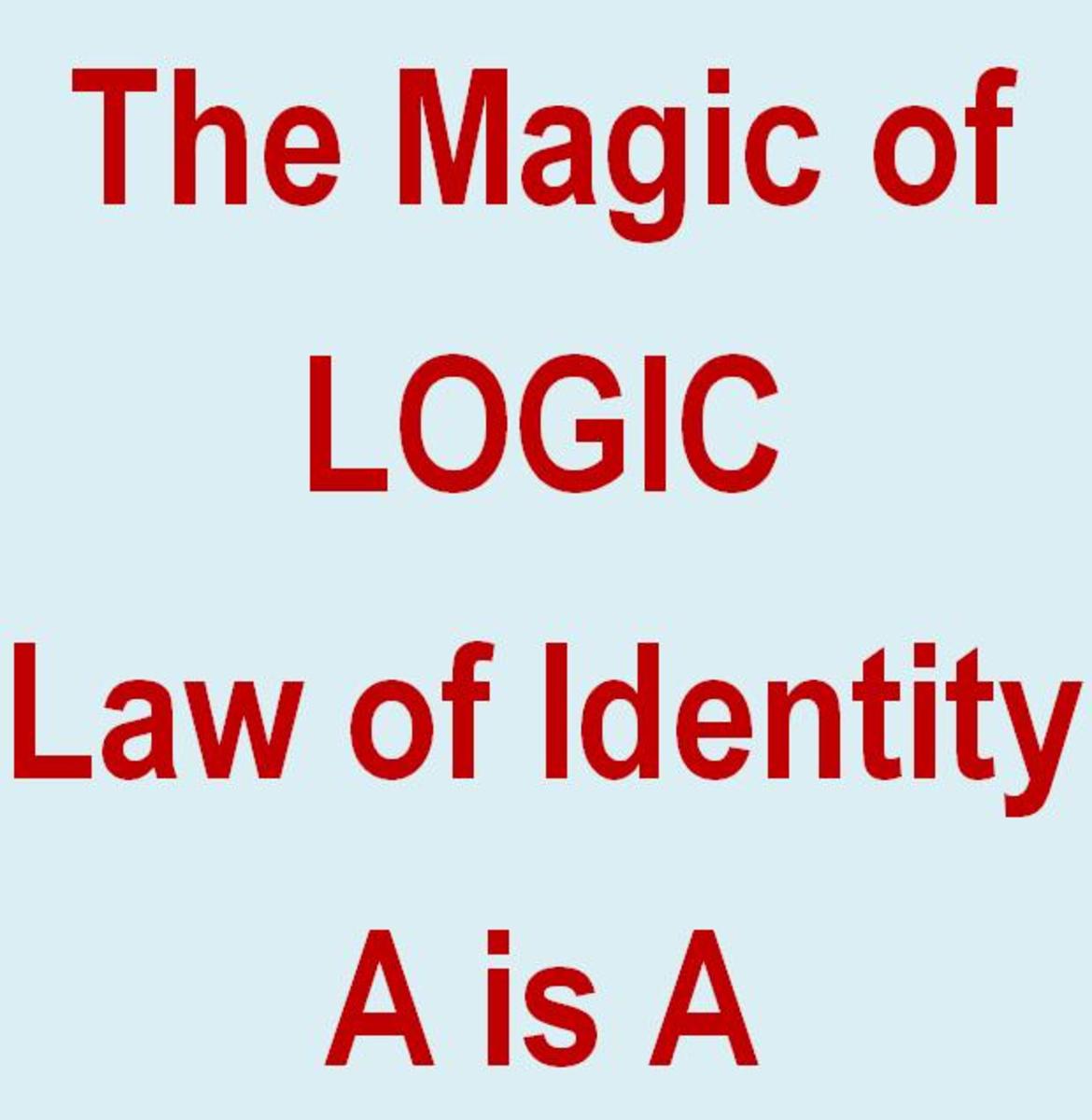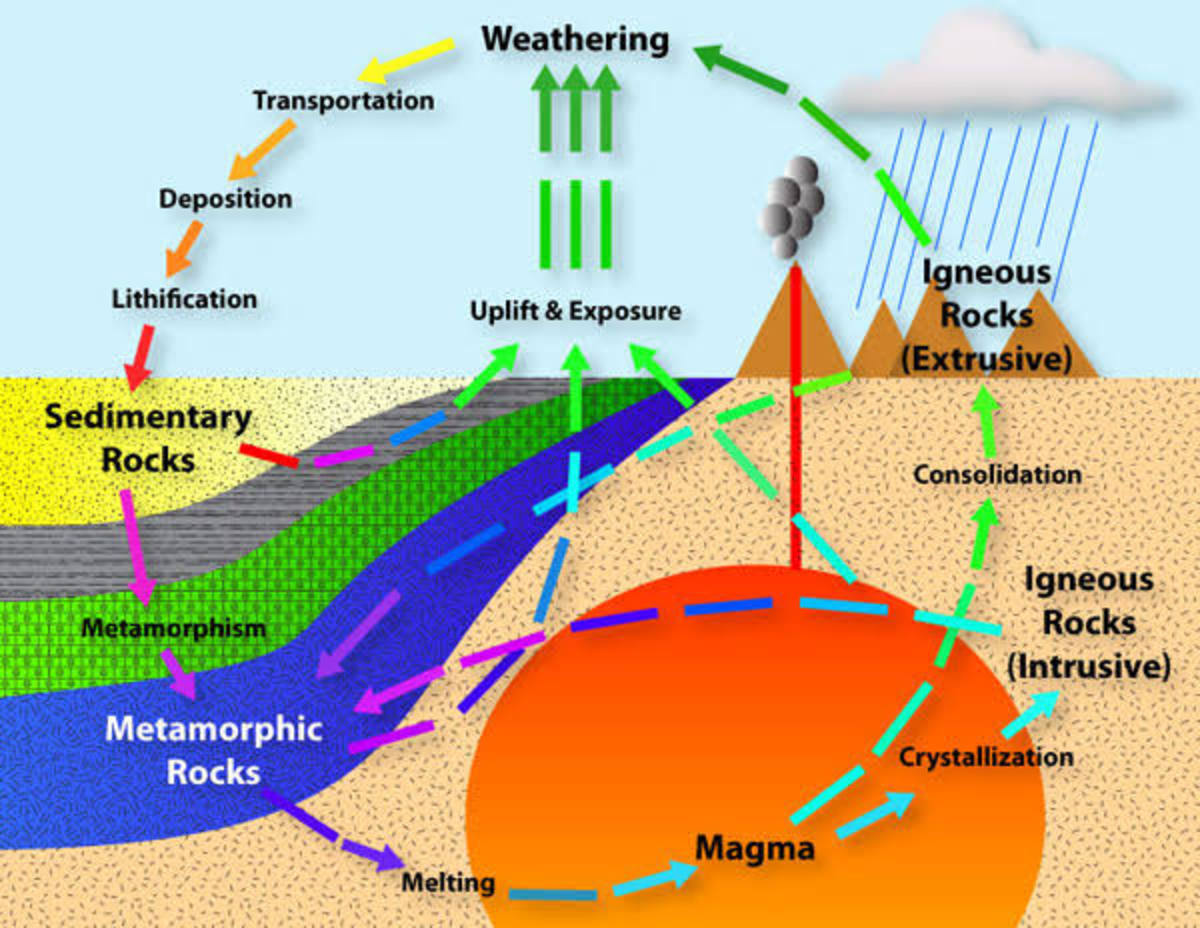Logic Is For Everyone

Logic is simply a tool of thought. The average person doesn’t necessarily understand what formal logic or informal logic is, but there is little doubt that they use some every day in making choices and in deciding what is real or fake, rational or irrational. We call it common sense or reasoning.
After all, we have to make choices all the time without the benefit of all the facts. We often have to guess at what the best way to do something is, or whether we are making a good deal or a bad deal for ourselves. Humans do have the capability to use past experience and observation as ways to help them make choices, and logic uses exactly those skills and techniques.
For example: if when I did not pay the electric bill and the result was that the company cut me off, paying the bill seems to be the key to keeping the lights on. It is a self evident conclusion. It is common sense.
But it is not the only answer. One could generate their own power or tap into someone else’s. And just because you pay the bill it does not mean the power won’t go out anyway due to a system malfunction or clerical error.
Things get complex fast when trying to sort things out; and options/conditions/variables are too numerous for us to consider every single one of them. We are even aware of all the variables in any given scenario. So we are always guessing in the end. Our guesses range from weak to strong depending on how good we are at putting everything that we do know or think we know together to come up with a final conclusion which we can turn in to action.
After all, it is all about finding out as much as possible about the situation we face before we take as much control as we can and manipulate it to what we perceive to be our advantage.
So we have a stake in what the truth is, so to speak. That is to say: we need to know what the truth actually is, not what we would like it to be. But finding it is not always easy, and there are many pitfalls in thought that actually keep the truth from us.
To help us get it right we developed rationality and eventually logic. Formal logic deals in the forms logic can take to reach a valid conclusion from a given premise. It is often formula driven: “if A then B” Informal logic is the art of argument and points out the fallacies of certain ways of thinking and modes of argument. Both are just different aspects of logic, not separate types of logic.
I have often spoken about the next step in human evolution being the logical mind. But what is the logical mind and what is logic?
Logic is really just a way around the pitfalls I mentioned. Formal and informal logic recognizes them and categorizes them for us, allowing us a better chance at finding the truth of a matter. But there is not just one form of logic, there are at least three major types in philosophy and several more in math. The logic of mathematics is usually strictly formal, and that is not what I am discussing here as such, though there is overlap. I am mostly interested in discussing the logic of philosophy.
The main three categories of logic are: inductive, deductive and abductive reasoning.
Now this all sounds complicated but it really isn’t. Well perhaps it is a bit. But it doesn’t have to be. After all, it’s all just common sense.
Deductive reasoning is usually attributed to Aristotle and the Greek philosophers. But I wouldn’t say that’s exactly true. What I would say is that Aristotle and friends are the first that we know of in the West who started recognizing patterns in human thought and how they work; thereby allowing us to examine our thought process, find the pitfalls, and refine our way of thinking.
Deductive reasoning is the type of logic most philosophers use, because if you start from a valid premise and follow the rules of deduction then the conclusion must necessarily be true. But only if your original premise is true. A deductive argument might start like this: All unmarried men are bachelors. Bob is a man and he is not married. Bob is therefore a bachelor.
Not too complicated so far. It is the kind of thing most of us are able to do without thinking it through consciously. The answer is just there, pushed up by the subconscious which has been taught that unmarried men are by definition bachelors.
Now the problem with deduction is as I have said: your premise must be true for the conclusion to be true. But if you follow the rules of deduction your conclusion will be true relative to your premise even if it is not the correct answer.
For example: if I said that all men who wear baseball caps eat chilli, Bob wears a baseball cap, therefore Bob eats chilli. My argument/conclusion is valid in that it follows from the premise, but my premise and conclusion are wrong. Not all men who wear baseball caps eat chilli. But if they did then Bob would eat chilli because he belongs to the set of men who wear baseball caps.
Hence deduction depends on a valid premise to achieve truth. What if there is no way to start from a valid premise? Aristotle and the gang had an answer for that as well.
Induction is used by science. It relies on observation but does not give you absolute truth in the same way deduction does if followed correctly. Inductive reasoning deals with probability.
Since the sun has come up every morning for the last 4 billion years or so, and since its life span is expected to be at least 5 billion more, it is highly probable that the sun will come up tomorrow.
We humans use this method of thought all the time. We assume the sun will come up tomorrow because it has always come up as far back as we know. We assume the tap will give us water every time we turn it on. But these are not assured things. Something could happen to the sun that we are not aware of long before its estimated best before date.
So we can say with some assurance that the sun will eventually fail to come up. Can’t we? Yes. With some, but not with absolute assurance, even though the probability nears 100 percent.
Besides which, are we really talking about the sun? The earth revolves which gives us night and day. The sun doesn’t really come up or go down at all, except from our perspective due to the rotation of the earth. What if one day the earth slowed and stopped rotating? For some of us the sun would never come up again even though it still exists intact. For others it would never go down again, until it went out.
Inductive reasoning is simply based on experience and observation which is then interpreted in rational ways.
But more about induction in a minute.
Abductive logic was started by Charles Sanders Peirce in the late 1800s/early 1900s.
Abductive logic uses inference from observation to create a hypothesis that explains the observation and all its relevant facts or evidence. It is also where we get the idea from that the simplest answer has the most likelihood of being true.
Abduction infers the best answer from a body of evidence. If we look up from our boat on a river and notice a car flying off the bridge at us we can abduct that the driver lost control of the vehicle for some reason.
So from our empirical observation we create a likely hypothesis. But it is not necessarily true. The car could have been dropped by an aircraft and its trajectory may have just made it look to us as if fell from a bridge. It may have been parked and unmanned and knocked off the bridge after being hit by a truck, leaving the driver out of the entire scenario.
All we can say with certainty then is that the car seemed to come crashing down from the bridge and definitely landed in the water, or on our boat depending on how close we were to the incident.
As you can see, abduction is also a process science uses. Science creates models from observations and the facts surrounding them. The models are not intended to always be the way things actually work. They are tools to orientate the scientist and give them something to build on. A good working model must make good solid predictions for it to be useful.
Our model that assumes there was a driver because: 1 most cars have a driver, and 2 we do not have any other information to go on, makes this model the most economical explanation and it gives us a chance, if we are not under the falling car, to see if we can rescue the driver and or passengers, or contact someone who might be able to: asap.
Abduction then garners a set of possible explanations and reduces them to the most likely one based on the evidence. Peirce once said of the method that it is really just guessing. Of course it is in essence the art of educated guessing.
As you may notice, abductive logic is a form of inductive logic. They are really the same thing with abductive logic being the more refined version. However, the two forms of logic are melded together today to form part of the scientific method. Hardly anyone talks about abductive logic anymore though it is still alive and well in modern inductive reasoning.
It is interesting to note that these categorizations of logic are what divide the traditional philosopher from the scientist. In Darwin’s day scientists were known as natural philosophers. However, in 1833 that all changed because of an argument in Cambridge University at a meeting of the British association for the advancement of science.
At that meeting Samuel Taylor Coleridge stood up and told the audience that they had to stop calling themselves natural philosophers because philosophy is based on deductive reasoning and what natural philosophy advocated was inductive reasoning. After a short debate William Schule stood up to calm the crowd and agreed that there was no proper name for the members of the group who practiced natural philosophy. But since they practiced science, like the word artist, they should perhaps call themselves scientists. And so they did.
Humans naturally use all three forms of logic every day without knowing it. Each type of logic applies to different types of inquiry.
Inductive reasoning allows for the possibility that even if all the premises an argument is based on are facts, the conclusions drawn may still be false or incomplete. An inductive argument deals in probability. So the argument is weak or strong depending on the probability of the conclusion drawn being true or correct.
in 1000 BCE It would be valid to assume the world is flat and not moving. After all, if you place something on a ball and spin it, it flies off pretty fast.
So if you asked a logical thinker of the time if the earth could be round and spinning he or she would understandably think you nuts and laugh at the idea.
It is a lack of knowledge here that is the problem. The person from 1000 BCE had no way of knowing about gravity.
The deductive thinker might have said: If I spin a ball and place something on it, the object will fly off. Therefore the earth cannot be a ball and cannot be spinning. If the earth is flat or even a disk which is stationary it would allow people to walk on it without throwing them off. Therefore the earth must be flat and stationary.
The abductive thinker might have said that the simplest explanation is the most likely to be true so side with the deductive thinker.
An inductive thinker might have said that it was highly unlikely due to the evidence at hand that the earth was round and spinning, but that he could be wrong. As it turns out, the inductive thinker would have had the stronger position.
Deductive reasoning starts from general principals and applies them to specific problems, coming to a specific conclusion which must be true if the premise you start from is valid.
All people are mortal
I am a person.
I must therefore be mortal.
Where as inductive reasoning starts from specific examples and results in a probability factor.
From observation, all people that we know of are and have been mortal
I am a person
I am most probably mortal.
It could be argued that the deductive certainty that I am mortal, while having a high probability of being true, might not be entirely true. There may be more to say on the matter in the future. If we start extending human life indefinitely in the future, that statement may no longer be true.
Also it is impossible for us to know with certainty that no one is immortal. How would we know such a thing with absolute certainty? I would lay odds that the probability nears zero with the information we have. But no one can be 100 percent certain. 99.99999 to infinity? Perhaps. But not 100 per cent.
You cannot say with certainty that all ravens are black just because you have never seen a green raven. You can only say with certainty that they are rare if they exist, as no one has ever seen a green one to our knowledge. Or you could say with certainty that you have never seen or heard of a green raven, but that doesn’t mean there aren’t any. It just means there is no way to know for certain unless you see one, or perhaps if you start seeing and hearing about them on the news you would eventually accept that they probably exist.
Absolutely true deductive certainties by and large turn into tautologies: All black ravens are black.
Unless of course, someone paints one green.
Now we have to talk about truth and what it is. Many people say that an absolute truth has to be absolute no matter what the conditions.
Others tell us that there is no such thing as absolute truth. The obvious flaw in the logic of that statement is that it shoots itself in the foot as soon as it is uttered. What they are telling us is that it is absolutely true that there is no absolute truth. But if they are right then their statement is one of absolute truth, thereby making their statement false.
So much for there being no absolute truths.
Others tell us truth depends on perspective. Again, this is saying there is no objective truth, just subjective truth, which is the same as saying there is no absolute truth, while claiming that the statement is true, hence falsifying the statement rather embarrassingly.
Another related idea is that truth can only be achieved by consensus, and since consensus is almost never reached there cannot be an absolute truth.
I disagree. Guess that takes care of that being true.
Math provides us with absolute truths that cannot be changed. 2+2=4 is an absolute truth. “I typed this text” is an absolute statement of truth which will remain true for eternity even though I can’t prove I actually typed this just by typing it. “You cannot create a square circle” is an absolute truth.
So some things are absolutely true and will never be not true no matter what the conditions.
Still others tell us that truth is relative to conditions. This is true is many cases. In fact in most cases. But not in all.
As it turns out truth has a simple formula to it: Truth depends on the conditions that make it true staying constant. If the conditions change, the truth about them changes.
However, as long as the conditions remain the same the truth remains absolute for those conditions. This actually encompasses truths that cannot change because there are no conditions involved with them.
Absolute truth then is a set of static conditions for as long as they remain perfectly static.
Painting a bird green changes the conditions in this case. It forces you to elaborate on the initial question. "Are all ravens black?" is not good enough if what you want to know is: are all ravens naturally black or born to be completely black birds, and you want to know that excluding the possibility of human interference with a spray can after the fact, or genetic revision by a mad scientist.
If we do not know about mad scientists or genetics we can’t figure them in to our deductions about what the truth of a set of conditions is because we do not know the entire set of conditions.
Because we cannot always know all the variables the best we can do, a great majority of the time, is make an educated guess as to the complete truth about anything. But that’s ok because we usually don’t need the entire truth. We usually only need the bits that relate directly to us and what we are trying to accomplish.
Does water boil at 100 degrees C? Yes and no. It depends on several conditions including the purity of the water and the altitude you are boiling your water at. The temperature for boiling water is variable. But that said, if you always boil water under the exact same conditions every time, the water boils at exactly the same temperature every time. We can be certain of that.
Can’t we?
For truth to be knowable at all we have to assume that there is one reality and we humans all have different perspectives on it. Therefore we have different interpretations of it. As no one can occupy the same space at the same time everyone by definition has a different perspective. Our perspectives overlap because we are all human and all have the same basic needs. But we fulfill them all in different yet similar ways.
While we can never be certain that our perspective shows reality completely or even more than metaphorically, we have to assume that our perspective relates to reality in some way. For Plato this idea was expressed in his concept of forms.
While the idea of forms has little merit as far as I can see, the idea that we cannot experience all the layers of reality with our limited sensors and that and that therefore our interpretation of reality relates to reality while not necessarily accurately representing it, does.
If this is not the case then: 1 existence certainly seems to point to it being so regardless, and 2 there would be no point in attempting to find the truth about anything if reality was perspective based and our perspective does not relate to an underlying reality.
From observation we know that both kinds of truth exist and function in a human being. What is subjectively true, however, may not be objectively true except in the case of the specific subjective being it applies to.
So we look for objective truth, as it relates directly to facts that exist regardless of whether humans exist or not. How do we know when we have found it? Someone once said: Truth is what is left when you stop believing. In other words, objective truth is not dependant on belief or affected by it. The apple is red or it is not. The door is open or it is not.
So that is what we are looking for: objective truth. It is often hard though to wade through all the subjective ideas and biases we have which prevent us from finding it.
The abductive answer has to be the simplest, which is that there is probably but one reality that we all have different perspectives on.
We have to use induction and abduction every day for almost every choice we make. We have to weigh uncertainties and come up with the best odds of success that we can come up with. So inductive and abductive reasoning is normal for people. It‘s the basic way many of us think.
Since the sun has come up every morning it is likely it will come up tomorrow. But it is really not a sure thing. Assuming it will always come up in the morning is probably not going to get you into any trouble. And for as long as you live you will probably be right. But someday that may not be the case.
Along with types of logic there are fundamental laws of thought. There are three main laws of thought according to logic. The first is the law of identity. Stated simply it means that you are you, you are not someone else. It is usually stated in the following manner: X is X and not: not X.
This law is related directly to how language works. We assign a word for an object and then use that word to define that object: An apple is an apple, not a pineapple.
Simple as it sounds this a fundamental law in reasoning and the next two laws just enhance this one rather than being unrelated.
The law of contradiction. I showed how this law works when we talked about ideas that shoot themselves in the foot because they break this law. The law states simply that you can’t make contradictory statements in logic. Aristotle said: "One cannot say of something that it is and that it is not in the same respect and at the same time".
In other words something cannot be true and not true in the same way at the same time. X cannot be X and not X at the same time in the same way. But it might be X and then not X at different times. A light can be on or off, not both at the same time.
You can see how this relates to X is X not: Not X.
The third law is the Excluded middle.
Simply put: In logic there is no middle ground. Something is or it is not. There is no in-between where it both is and is not, as already inferred by the law of contradiction. You have an apple or you do not. You are either lying about having an apple or you are not.
You cannot have an apple in your hand and not have one in your hand at the same time. Pictures of apples are not apples, so there is no use trying that tact to foil the law.
There are other laws as well: The principle of sufficient reason. It tells us that all things have a reason for existing. That is to say that all things have cause. For every X, if X exists in reality, it has a cause.
This law is used by science and religion alike. In science it just called cause and effect.
But with all types of reasoning, particularly inductive reasoning, there is a danger of confirmation bias. This is where we look for confirmation for our hypothesis more often than we search for falsification of it. If we believe something we often only accept things which seem to confirm our belief rather than things that do not, or that refute it. This is the case with religion and the belief in a god. If one believes in a god then all other beliefs are coloured by that and all manner of things are attributed to the said god without any evidence that there is a real link. This acts to confirm the individual’s belief that there is a god.
Of course, this is also an example of circular reasoning which is by nature fallacious. There are at least 200 belief, memory and decision making biases, and well over 100 documented categories of fallacy we may fall to with any given choice, attempt to get at truth or attempt to form an opinion. More often than not we fall to more than one at a time. It’s a wonder we get anything right.
So now that we know that, we know we have to guard against it, and that is what science and the scientific method attempts to do. It is also what philosophy attempts to do by finding and categorizing the different modes of thought we employ, their weaknesses and strengths, and their pit falls.
That is really what logic is.
Charles Sanders Peirce had the feeling that logic was natural. That is to say, not just a human construct. This is something I’ve been saying long before I knew Peirce existed.
He understood that our guesses, while wrong as much as right, are still too often correct to be explained by random chance. He said that it indicated that humans were tuned in to nature, so to speak, by instinct.
And of course he was right.
We now know that the human mind has several layers. The two main layers we are interested in are the conscious and the subconscious. The subconscious is pure instinct. Instinct is where our actions and choices really come from. The conscious mind is the center of deliberation. What the conscious mind learns, the instinct learns and enacts.
The subconscious is where emotions come from. We are told as children to trust our feelings. If something feels wrong, it probably is. And this is basically true. But we change the way we feel through learning, often changing our mind about what is right and wrong for us, and that is done mostly through the conscious mind.
People may spend their lives hating one religion or another, or hating people of one ethnic group or other, or people who are gay or lesbian. However, usually through a long and slow process, a person may have a revelation, or a change of heart. They no longer hate a particular people because that feeling has left them. It happens more often than one might think.
This is why learning logic is learning not only how we think, but how to improve how we think. Because again: logic is in our nature.
We observe, and then we have to make sense of what we observe. Experience is the best teacher so it is said. But experience without comprehension is meaningless and useless.
The human’s biggest leap forward was language. That gave us the ability to explain what we experience to others and to ourselves very efficiently. Without it the division between the instinct and consciousness is nowhere near as clear, and conscious deliberation beyond fight or flight is difficult at best.
Language allows us to come to complex concepts. We think to ourselves and deliberate in inner language. Sometimes literally talking to ourselves. One can imagine what it might be like to not have a complex inner language, unable to conceptualize in a concrete way. Most of the life on this planet is in that kind of state. It’s not that animals do not have a conscious and subconscious division. I’m not entirely sure they don’t. It is just that if they do it is likely that the conscious side doesn’t have the tools to clearly think things out. Symbol recognition in the form of words enhances the conscious mind and therefore enhances the subconscious by giving us the ability to more clearly weigh issues and find the best solutions. Best, that is, for us at the time; as far as we know.
Better than biting the person next to you out of frustration, as my cats do, of course. When you can’t think things through you live mostly on raw emotions. We really have come a long way.
But there is still far to go before the mind of the masses is a completely logical mind. And the logical mind will never replace the emotional side of us nor should we try to erase it. That’s the side that can act quickly when the chips are down. It would not be wise to try to be emotionless. But it is just as unwise to be ruled by emotions alone.
Rather the logical mind is there to help us understand the emotions we have and modify them though a better understanding of the situation. The logical mind is there to educate the instinctive, which in turn often alters the emotions we have.
So even though we all use logic to some degree whether we know it or not, it is perhaps better to learn formal and informal logic as well, just to get a helping hand to avoid some of the pitfalls and traps of thought. After all, the better we think, the better our actions and the easier our goals are to achieve.


